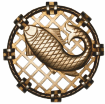Research areas
Faculty Departments
- Environmental Biotechnology
- Environmental Microbiology
- Environment Engineering
- Water Protection Engineering
- Fish Biology and Pisciculture
- Ichthyology
- Lake and River Fisheries
- Tourism, Recreation and Ecology
The Department of Environmental Biotechnology, or DEB, (Chair: Prof. I. Wojnowska-Baryła) develops advanced technologies based on biological systems to improve efficiency, and reduce or utilize waste to benefit a wide range of industries and the environment. Utilization of environmental biotechnologies will also be one of the most valuable tools for improving the quality of life for future generations by providing cost-effective mechanisms for preserving and restoring natural resources.
The DEB focuses on developing new technologies for microbiological conversion of plant biomass and agro-industrial wastes into energy and valuable chemicals. Moreover, new hybrid technologies for wastewater treatment, solid waste utilization, and soil remediation are developed. The scientific projects executed in the Department are supported by modern, molecular tools for the analyzing mixed microbial communities and assessing the toxicological risk of xenobiotics. The DEB brings together the multidisciplinary skills of researchers, engineers and industry participants to rapidly adapt new technologies for industry, agriculture and environmental protection and reclamation. The curriculum in the DEB prepares students both for theoretical and applied studies at the Master’s and Doctoral level and for careers in which the graduates will use biotechnological methods to reduce and dispose of environmental hazards.
The Department of Environmental Microbiology, or DEM, (Chair: Prof. Z. Filipkowska) emphasizes versatility by undertaking a broad range of tasks related to the study of microorganisms in the environment. The DEM uses a combination of traditional culture-based and biochemical methods, as well as modern molecular methods to study microorganisms. It conducts studies of microbial communities in natural ecosystems and assesses the microbiological quality of water. The DEM brings together researchers with multidisciplinary skills to study the sanitary and bacteriological aspects of sewage purification and antibiotic resistance in environmental bacteria. The Department also conducts microbiological surveys of fish and feeds in a variety of aquaculture systems. The curriculum of the DEM prepares students for careers in microbiological and environmental monitoring laboratories.
The Department of Environment Engineering, or DEE, (Chair: Prof. W. Janczukowicz) develops advanced technologies based on biological systems. It focuses on wastewater treatment, waste utilization and production of energy from organic waste and micro-algae. The curriculum prepares students for careers in R&D institutes, design offices, local and government administrative bodies, and enterprises dealing with air protection, water supply, wastewater treatment and waste disposal.
The Department of Water Protection Engineering, or DWPE, (Chair: Prof. J. Dunalska) researches methods for protection and restoration of water reservoirs. DWPE researchers study the mechanisms of acceleration of water eutrophication and the influence of global climate change on energy and matter flows in aquatic ecosystems. The Department’s curriculum prepares students for careers in water resources management and protection, including jobs at local and government institutions and administrative bodies.
The Department of Fish Biology and Pisciculture, or DFBP, (Chair: Prof. M. Woźniak) assembles the skills of researchers working in many fields of science for studies of numerous biological issues: fish diet and feeding, the age and the growth rate of fish, the utility of fish marking and tagging in population studies, the use of parasites as natural tags of fish. The DFBP team is involved in activities for the restoration of rare or endangered fish species. Scientists in the department develop and apply tools for estimating the impact of biological and anthropological factors on fisheries and fish communities, with special regard for protected areas. Additionally, department researchers are currently working on the assessment of the nutritive value of fishes from various habitats. The department’s curriculum prepares students for careers in areas of aquaculture (extensive, semi-intensive, intensive), feed plants, and fish processing plants.
The Department of Ichthyology, or DI, (Chair: Prof. K. Demska-Zakęś) focuses its efforts on the development of fish health and welfare in aquaculture, proper management of the genetic resources of the fish stocks, and the development of reproductive biotechnologies like gynogenesis, androgenesis, hybridization, triploidization, establishment of clonal fish lines, and production of sex-reversed fish and of fast growing mono-sex fish populations. In addition to studies of genetics and evolution, the department uses fish as models to study the environmental impact of introduced alien species and water pollution by endocrine disrupting chemicals using an interdisciplinary approach. The curriculum prepares students for careers in freshwater aquaculture, the fish breeding industry, the wildlife protection sector, and diagnostic laboratory services.
The Department of Lake and River Fisheries, or DLRF, (Chair: Prof. R. Kujawa) covers areas of fish reproduction and larviculture, fish biology and ecology, and fishery management in lakes, rivers and reservoirs. Their main research topics include the following: i) controlled reproduction of commercial and non-commercial freshwater fish species, with special attention paid to optimization of induction of final oocyte maturation, the effect of broodstock management and spawning agents on gamete quality, and the optimization of gamete handling procedures; ii) development of reproduction and culture procedures for native freshwater fish species, with special attention to riverine cyprinids, such as asp, chub, dace, ide, and common barbell; iii) the optimization of rearing and culture procedures with a strong emphasis on improvement of larvae rearing; iv) cage culture (including illuminated cages) of fish; and v) analysis of the commercial exploitation of lakes and rivers and its effects on fish population structure and dynamics.
The curriculum prepares students for careers in all fields of aquaculture (extensive, semi-intensive, intensive, ornamental aquarium fish species) as specialists in reproduction and culture, and in management of lakes and rivers resources.
The Department of Tourism, Recreation and Ecology, or DTRE, (Chair: Prof. E. Paturej) focuses its efforts on the development and application of hydrobiological and biogeochemical research to assess the quality of inland and estuarine waters with a view to their sustainable management and protection of their biodiversity. Studies on nutrient cycling and ecology of macrophytes, phytoplankton, zooplankton and zoobenthos are conducted using innovative approaches as numerical methods, satellite remote sensing monitoring calibration and mathematical modeling.
The curriculum prepares students for careers in: Water and nature protection agencies and consultant companies, organizations responsible for implementation EU directives as Water Framework Directive, NATURA 2000, Framework Directive for Marine Strategy.


